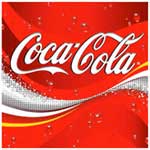
These goals, which complement other Coca-Cola well-being and community commitments, focus on sustainable management of water, energy, and packaging as well as sustainable sourcing of agricultural ingredients until 2020.
Coca-Cola and WWF - whch have been in partnership for almost 10 years - have agreed to extend their efforts by meeting new conservation and performance targets, promoting the integration of nature's value into decision-making processes and convening influential partners to help solve shared global environmental challenges.
"At Coca-Cola, we are deeply committed to working with partners to address our collective environmental challenges and responsibly manage the planet's resources," said Muhtar Kent, chairman and chief executive Coca-Cola.
"As we face a resource-stressed world with growing global demands on food and water, we must seek solutions
that drive mutual benefit for business, communities and nature. Working with WWF will continue to challenge our company to advance our sustainability programs and WWF's expertise in this will be instrumental in reaching our environmental performance goals, some of which they help us set," Kent said.
"We are seeing unprecedented demands on natural resources around the world. Continuing along the lines of business-as-usual puts everything at risk, including the viability of business," said Carter Roberts, president and chief executive of the WWF.
"These problems can only be solved by working together, and our work with Coca-Cola has proven that collaboration can amplify and accelerate the impact we need," he said.
Under the renewed and expanded partnership, Coca-Cola and WWF jointly developed new 2020 environmental sustainability goals for Coca-Cola and its bottling partners in 200 countries. These goals include:
In addition, Coca-Cola is also working to buy lemon, grape, apple and mango from sustainable sources.
In addition to the goals jointly developed and announced with WWF, Coca-Cola says it will:
Since 2007, Coca-Cola and the WWF have worked together to conserve and protect freshwater resources around the world while helping to improve the efficiency of the beverage producer's global operations.
To date, the partnership has led to major conservation gains, including helping to improve the ecological health of seven of the world's most important freshwater basins across five continents, improve the Coca-Cola's water efficiency by 20% by preventing 5m tons of CO2emissions across its manufacturing operations and promoting sustainable agriculture among farmers.

For more than two decades, I-Net Bridge has been one of South Africa’s preferred electronic providers of innovative solutions, data of the highest calibre, reliable platforms and excellent supporting systems. Our products include workstations, web applications and data feeds packaged with in-depth news and powerful analytical tools empowering clients to make meaningful decisions.
We pride ourselves on our wide variety of in-house skills, encompassing multiple platforms and applications. These skills enable us to not only function as a first class facility, but also design, implement and support all our client needs at a level that confirms I-Net Bridge a leader in its field.
Go to: http://www.inet.co.za